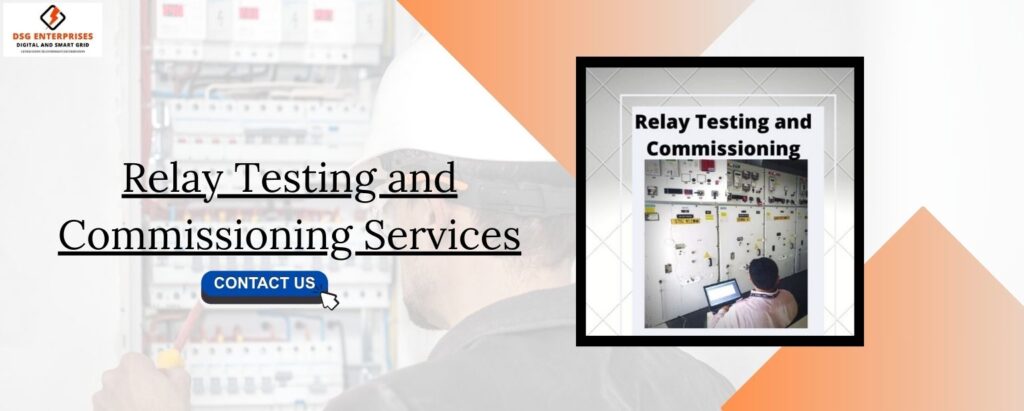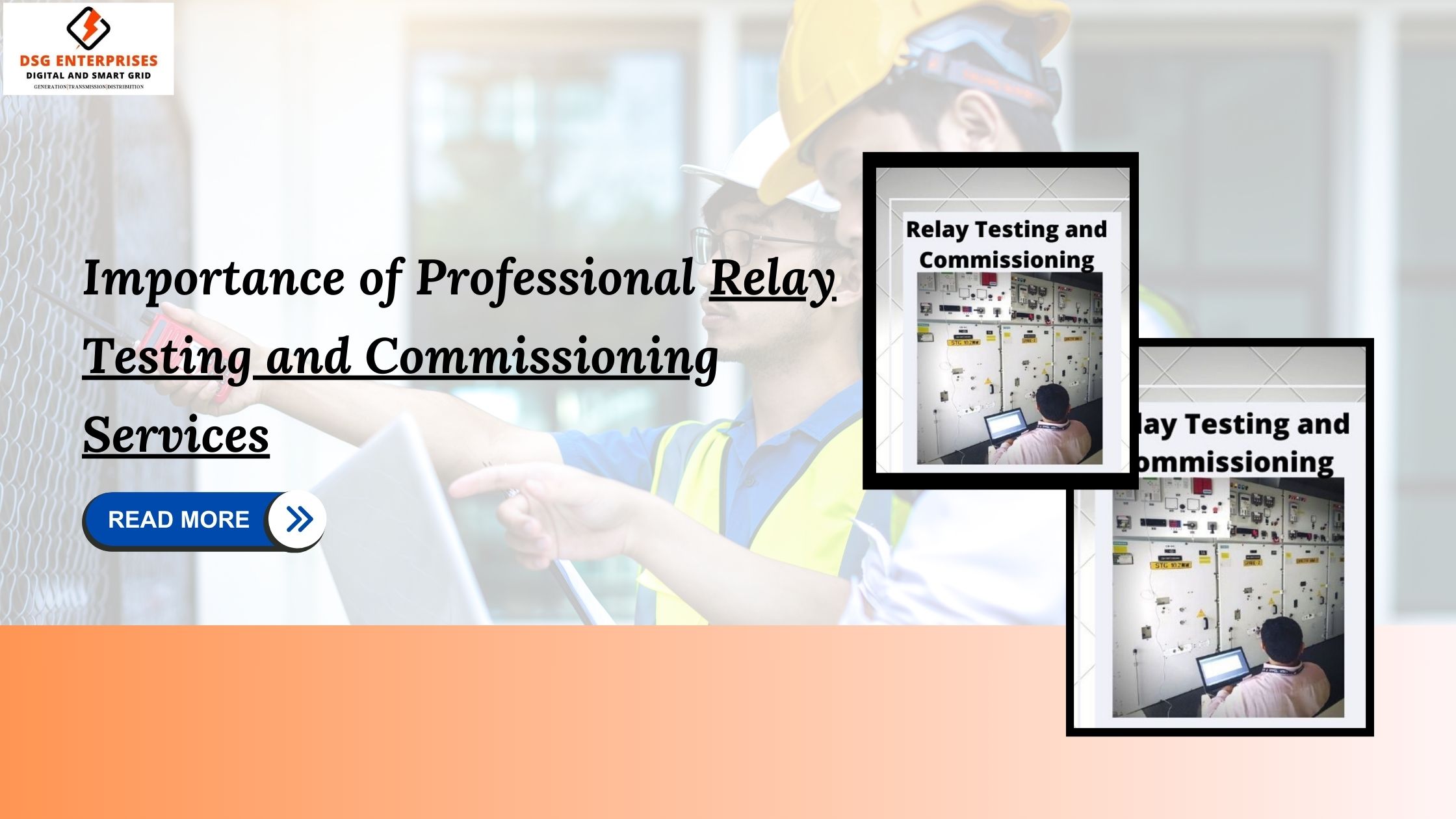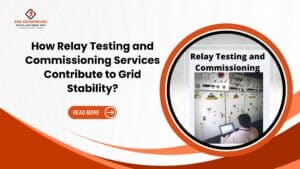Professional relay testing and commissioning services are vital for ensuring the reliability and safety of electrical power systems. These services identify potential issues before they escalate, ensuring relays perform accurately during faults. Regular testing prevents catastrophic failures, minimizes downtime, and ensures compliance with industry standards. Utilizing advanced testing equipment, skilled technicians perform thorough inspections, functional tests, and periodic maintenance. Integration with SCADA systems further enhances monitoring and control capabilities. By investing in these services, operators can maintain optimal system performance, safeguard equipment, and ensure the continuous, efficient delivery of power.
Overview of Protection Relays
In the realm of electrical power systems, ensuring the reliability and safety of operations is paramount. One of the critical components that safeguard these systems is the protection relay. These devices detect faults and initiate necessary actions to prevent damage and outages. However, like any other equipment, relays require meticulous testing and commissioning to ensure their optimal performance. Professional relay testing and commissioning services play a crucial role in maintaining the integrity of power systems. This blog delves into the significance of these services, highlighting their benefits and the processes involved.
Protection relays are fault detection devices designed to sense irregularities such as overcurrent, overvoltage, and other anomalies within an electrical system. Upon detecting a fault, relays trigger circuit breakers to isolate the affected section, thereby preventing damage to equipment and ensuring the safety of personnel. These relays act as the brain of the protection scheme, making real-time decisions based on pre-set parameters.
Given their critical role, protection relays and their associated components, such as master trip relays and auxiliary relays, must be regularly tested and maintained. This ensures that they function correctly when needed, particularly during fault conditions that may not occur frequently but can have catastrophic consequences if not properly managed.
Why Professional Testing and Commissioning Are Essential
- Preventing Catastrophic Failures: Regular Relay Testing and Commissioning Services of protection relays help identify potential issues before they escalate into significant problems. This proactive approach ensures that faults are detected and addressed promptly, preventing equipment damage and costly downtime.
- Ensuring Reliability and Accuracy: Over time, the characteristics of protection relays may change due to aging, environmental factors, and varying load conditions. Regular testing ensures that relays remain accurate and reliable, providing the necessary protection when faults occur.
- Compliance with Standards: Power systems must adhere to stringent safety and performance standards. Professional testing and commissioning services ensure that relays and protection schemes comply with these standards, thereby avoiding legal and regulatory complications.
- Minimizing Downtime: Professional services are equipped with advanced testing equipment and methodologies, enabling them to perform testing and commissioning quickly and efficiently. This minimizes downtime and ensures that power systems are restored to normal operation promptly.
- Enhancing Safety: Faulty or improperly set relays can pose significant safety risks. Regular testing and commissioning enhance the safety of electrical systems by ensuring that protection relays function as intended, thereby safeguarding personnel and equipment.
The Testing and Commissioning Process
Professional relay testing and commissioning involve a series of meticulous steps designed to ensure the optimal performance of protection relays. These steps include visual inspection, mechanical inspection, electrical testing, and periodic maintenance.
- Visual Inspection: Before any testing begins, a thorough visual inspection of the relay and its surroundings is conducted. This involves checking for excessive dust, dirt, or metallic materials on the relay cover, which could indicate the need for air filtering at the station. Additionally, inspectors look for loose connections, broken studs, burned insulation, and dirty contacts. Ensuring that each relay is set according to its setting sheet is also part of this inspection.
- Mechanical Inspection: Mechanical inspection focuses on verifying the physical integrity of the relay. All connections should be tight to prevent issues caused by excessive vibration. Inspectors also check for foreign materials in gaps and assess the condition of gaskets. Moving parts such as contact gaps and armature gaps are measured and compared with previous measurements to identify excessive wear, necessitating the replacement of worn parts.
- Electrical Testing: Electrical testing is a critical aspect of relay testing and commissioning. This involves using advanced test kits such as Omicron, Doble, and Megger to perform functional and operational tests. These tests simulate fault conditions and assess the relay’s response, ensuring that it meets the specified performance criteria.
- Periodic Maintenance Tests: Periodic maintenance tests are essential to ensure that protection schemes continue to perform satisfactorily over time. All equipment is subject to gradual degradation, and regular testing helps identify potential issues before they cause malfunctions. Numerical relays with self-checking facilities minimize failures, but periodic testing covers all components of the protection scheme, ensuring comprehensive reliability.

Specific Protection Schemes Testing
Using secondary injection kits, functional tests are performed to verify the relay’s response to various fault conditions. These tests encompass not only the protection relay but also the entire protection scheme, including master trip relays, supervision relays, auxiliary relays, and annunciators. The tests involve applying appropriate inputs to the relay and measuring its performance to ensure it meets the required specifications.
Advanced test kits enable the testing of various protection schemes, each with its specific characteristics. These schemes include:
- Overcurrent Protection
- Under/Over Voltage Protection
- Under/Over Frequency Protection
- Rate of Change of Frequency
- Synchrocheck
- Auto Reclosing
- Directional Overcurrent Protection
- Differential Protection for Line, Cable, Transformer, Generator, Motors
- Distance/Impedance Protection for Lines, Cable, Generators
- Generator Protection
- Motor Protection
- Busbar Protection
Advanced Equipment and Techniques
Professional relay testing and commissioning services utilize advanced equipment and techniques to deliver accurate and reliable results. Some of the key tools and methodologies include:
- Advanced Test Kits: Portable relay test sets from manufacturers like Omicron, Doble, and Megger provide reliable and accurate results. These kits come with advanced features and in-built test templates that facilitate precise testing and instant report generation.
- Systematic Procedures: Well-designed systematic procedures ensure thorough and efficient testing. These procedures minimize errors and ensure that all aspects of the protection scheme are tested comprehensively.
- Trained Personnel: Skilled technicians with expertise in relay testing and commissioning ensure that the process is conducted accurately and efficiently. Their knowledge and experience enable them to identify potential issues and take corrective actions promptly.
Conclusion
Professional relay testing and commissioning services are vital for maintaining the reliability, safety, and performance of electrical power systems. These services prevent catastrophic failures, ensure compliance with standards, minimize downtime, and enhance safety. The meticulous testing and commissioning process, coupled with advanced equipment and trained personnel, ensures that protection relays function optimally, providing the necessary protection when faults occur. By investing in professional relay testing and commissioning services, power system operators can safeguard their equipment, personnel, and operations, ensuring uninterrupted and efficient power delivery.
At Digital & Smart Grid Enterprises, we take pride in being pioneering suppliers. For Relay Testing and Commissioning Services near me and Testing Equipment Manufacturers to give instant and reliable solutions and services. We have capability of doing configuration, testing and commissioning of various make Numerical relays, Substation Automation Systems, RTU’s. We also offer pre-sales, post-sales, and procurement consultancy. Our commitment lies in providing customized solutions that cater to diverse industry needs. Whether you have inquiries or are looking to make a purchase, don’t hesitate to reach out for Relay Testing and Commissioning Services Cost to us at +917021624024 or via email at marketing@dsgenterprises.in. We assure steadfast support every step of the way. Explore our extensive range by clicking here for more information.



